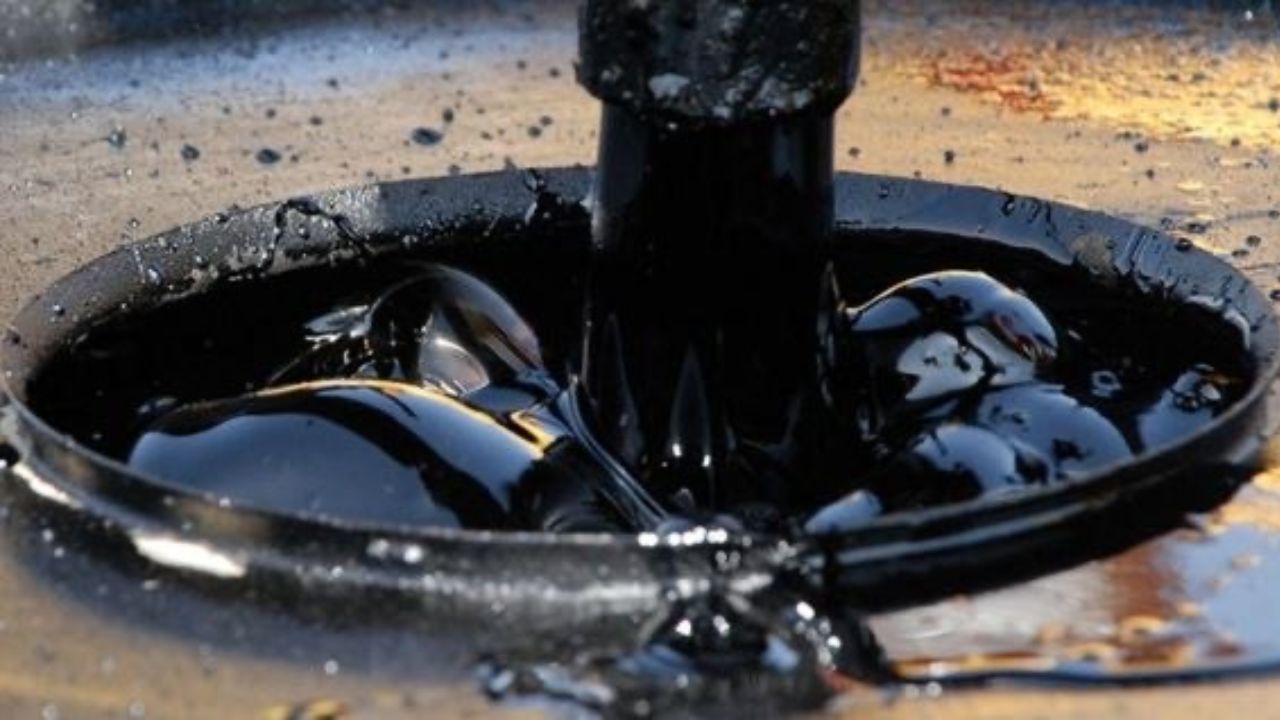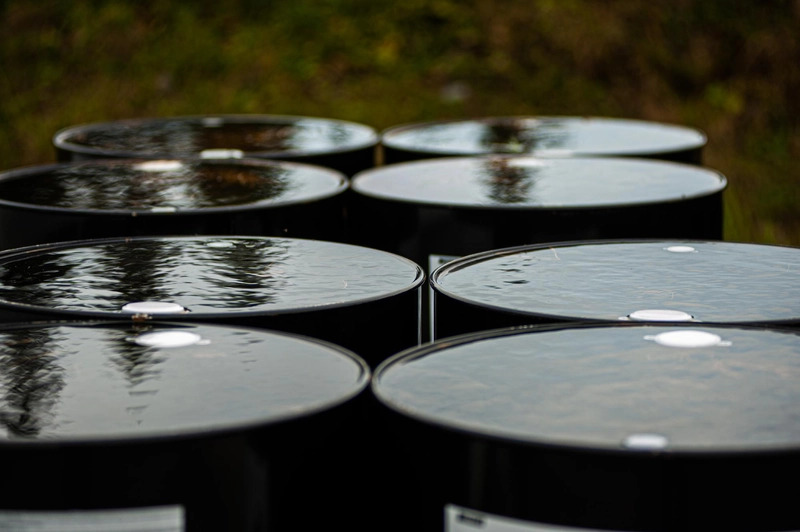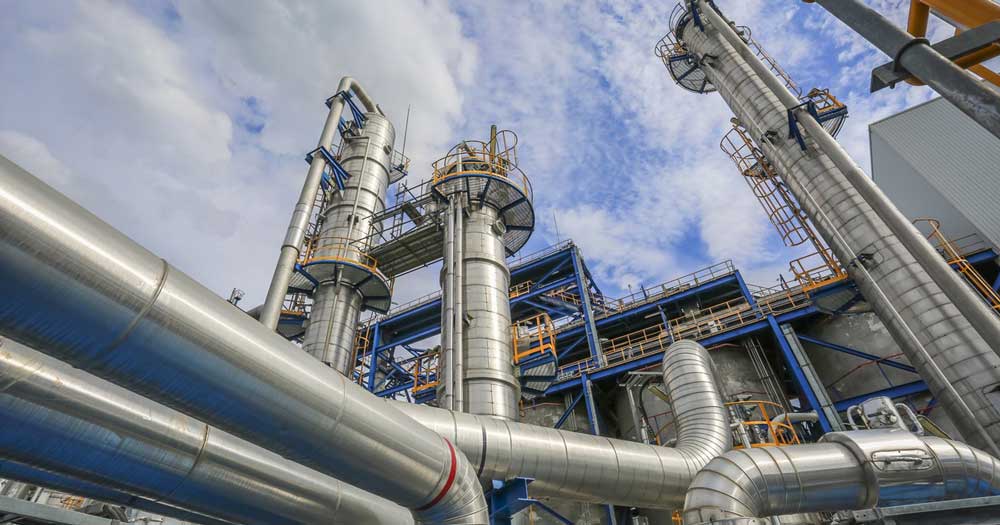What is Mazut ?
Mazut is a heavy, low-quality virgin fuel oil d6 that is used primarily in industrial boilers, furnaces, and large marine engines. At iranpetroexport, we provide mazut that meets the necessary standards for industrial use, ensuring reliability and efficiency. It is a byproduct of the crude oil refining process and is known for its high viscosity and dark color. Due to its dense composition, mazut requires preheating before combustion and is mainly used in countries with less strict environmental regulations.
Mazut is not typically used in cars or small-scale engines due to its high sulfur content and pollutant emissions. However, in power plants and factories, mazut offers a cost-effective energy source, especially when other types of fuel are not available or affordable. With iranpetroexport, you can trust in the quality and supply consistency of mazut for your business needs.
What is Mazut Used For ?
Mazut is a heavy, low-quality fuel oil that is widely used across various industries due to its high energy density and cost-effectiveness. It serves as a reliable fuel option in multiple sectors, supporting critical industrial and residential needs. The main uses of mazut include:

Main Uses of Mazut :
- Power Generation
- Industrial Heating
- Marine Fuel
- Residential Heating
- Backup Energy Source
1. Power Generation:
Mazut is commonly used in power plants, especially in regions where access to natural gas or other fuels is limited. Its high calorific value ensures a steady and reliable supply of electricity, which is essential to meet the increasing energy demands during peak hours. Power plants using mazut can quickly adjust output, making it a flexible energy source. In agricultural regions, such power plants often operate alongside industries dealing with Urea Fertilizer, supporting both energy and fertilizer needs efficiently.
2. Industrial Heating:
Many manufacturing facilities rely on mazut to heat boilers, furnaces, and kilns due to its ability to generate consistent high temperatures. This steady heat output supports critical industrial processes like metalworking, chemical production, and food processing, where temperature control is vital for quality and efficiency.
3. Marine Fuel:
Mazut serves as a primary bunker fuel for large ships and tankers that require long-distance travel capabilities. Its high viscosity and energy density enable vessels to maintain propulsion over extended voyages, making it integral to global maritime logistics despite growing environmental regulations.
4. Residential Heating:
In colder and rural regions without access to gas infrastructure, mazut is commonly used for oil-fired boilers in residential heating systems. It provides a reliable and continuous heat source during winter months, ensuring comfort and safety in homes where alternative heating fuels are unavailable.

5. Backup Energy Source:
Mazut powers backup generators critical for facilities like hospitals, data centers, and emergency services. During power outages, generators fueled by CST fuel oil and mazut provide uninterrupted electricity, safeguarding vital operations and minimizing risks associated with blackouts. The reliable combustion of CST fuel oil makes it a trusted choice for emergency power supply in critical infrastructure.
Mazut Formula and Chemical Composition
Mazut is a complex heavy fuel oil composed mainly of hydrocarbons, including various long-chain alkanes, cycloalkanes, and aromatic compounds. Its chemical composition can vary depending on the crude oil source and refining process, but typically mazut contains a mixture of carbon, hydrogen, sulfur, nitrogen, and trace metals. Understanding the chemical formula and composition of mazut is essential for optimizing its use in different industrial applications and managing its environmental impact.
Chemical Components of Mazut :
- Hydrocarbons (C_nH_m): Long-chain alkanes, cycloalkanes, and aromatics
- Sulfur (S): Present in varying amounts, influencing pollution and refining needs
- Nitrogen (N): Small amounts, affecting combustion characteristics
- Trace Metals: Vanadium (V), Nickel (Ni), Iron (Fe) in minor concentrations
- Carbon (C) and Hydrogen (H): Primary elements forming the hydrocarbon chains
The general chemical formula of hydrocarbons in mazut can be approximated as C_nH_m, where n and m represent the number of carbon and hydrogen atoms, respectively. Due to the complex mixture of molecules, mazut does not have a single fixed formula but rather a range of related compounds. The sulfur content is particularly important because it affects both the fuel’s quality and the emissions produced during combustion. Refiners often treat mazut to reduce sulfur levels, making it more environmentally friendly.
Understanding these components helps in selecting appropriate technologies for combustion, emissions control, and refining processes, ensuring that mazut is used efficiently and in compliance with environmental regulations. In certain petrochemical processes, compounds like Prilled Urea are also used alongside mazut for enhancing performance or byproduct management.
Mazut vs Diesel: Key Differences and Use Cases
Mazut and diesel are both widely used petroleum fuels across various industries, but they have significant differences in chemical composition, physical properties, and applications. Understanding these differences helps industries choose the right fuel, improving efficiency and reducing costs.

This heavy, viscous fuel is commonly used in power plants, industrial boilers, and marine vessels, whereas diesel is a lighter, more fluid fuel that ignites quickly and is primarily used in vehicles and lighter machinery. The ke differences between these two fuels include:
- Viscosity: The heavier fuel is thick and requires heating, while diesel is liquid and flows easily.
- Energy content: The heavier fuel contains more energy but burns slower.
- Sulfur content: It has higher sulfur content, resulting in more pollution.
- Applications: Diesel is used for transportation and light machinery; the heavier fuel is used in heavy industrial and marine equipment.
- Environmental impact: Diesel is a cleaner fuel with lower emissions.
Viscosity and Usage
The high viscosity means it must be heated before consumption to reach an optimal state for combustion. This requires specialized equipment for storage and handling. Diesel, on the other hand, remains liquid at normal temperatures, making it easier to use in various engines.
Energy Content and Fuel Performance
Although the heavier fuel has a higher energy density, its combustion is slower and harder to control, making it suitable for large-scale power generation and heating systems. Diesel’s quick ignition makes it ideal for vehicles and machinery that demand fast power response.
Sulfur Content and Environmental Effects
Higher sulfur levels lead to the emission of sulfur dioxide, a pollutant that requires advanced filtration and purification systems to control. Diesel contains significantly less sulfur, making it a more environmentally friendly choice.
Fuel Applications
Diesel is primarily used in vehicles, light machinery, generators, and transport equipment. The heavier fuel is favored in power plants, heavy industries, ships, and situations requiring heavy, high-energy fuel.

Cost and Availability
This type of fuel is generally cheaper than diesel, but its usage demands additional equipment and handling costs. Diesel is more popular in the market due to its ease of use and higher quality.
Ultimately, the choice between these fuels depends on industrial needs, environmental regulations, and budget constraints. iranpetroexport offers high-quality products and specialized services to ensure you get the best fuel solution.
Environmental Considerations When Using mazut
Using mazut as a fuel source comes with notable environmental challenges. Its high sulfur content can lead to increased air pollution, especially in the form of sulfur dioxide emissions. This contributes to acid rain and poses health risks in urban and industrial areas. Proper combustion systems and filtration technologies are essential to minimize the environmental footprint. Companies must also comply with global emission standards to ensure responsible fuel usage and reduce long-term ecological impact.
How to Ensure High-Quality Mazut for Your Business
Ensuring the quality of the fuel you use is a key factor in the success of any industrial or commercial operation. Choosing the right mazut supplier not only impacts your production performance but also protects your equipment and reduces operational risks. At iranpetroexport, we go beyond basic supply—we deliver reliability, consistency, and verified quality. All our fuel shipments are carefully inspected to meet international quality and environmental standards.
With iranpetroexport, you gain access to a professional export team that understands global energy markets and ensures compliance with all technical specifications. Our clients benefit from transparent documentation, flexible logistics, and personalized support throughout the purchase process. Whether you are sourcing fuel for marine transport, heavy manufacturing, or power generation, iranpetroexport provides trusted solutions you can count on.

In addition to high-quality fuel products, iranpetroexport also offers Granular Urea, meeting the needs of the agricultural sector with premium fertilizer options. This comprehensive approach ensures your business has access to both reliable energy and essential agricultural chemicals.
When quality matters, partnering with iranpetroexport is the smart decision. Your business deserves the best—let us fuel your future.
Conclusion
In conclusion, understanding the characteristics, applications, and differences of Fuel Oil Mazut M100 is essential for businesses that rely on heavy fuels. From power generation to maritime transport, this fuel continues to play a vital role in many industrial sectors. However, the key to long-term success lies in sourcing high-quality fuel from a reliable supplier. Additionally, proper handling and storage techniques, such as using Bitumen Waterproofing, can help protect fuel infrastructure and ensure operational efficiency.
iranpetroexport stands out as a trusted name in the global energy market, offering certified products, expert support, and flexible solutions tailored to your business needs. Whether you’re a new buyer or an established player in the fuel industry, partnering with iranpetroexport ensures that you receive dependable service, competitive advantages, and long-term value.
